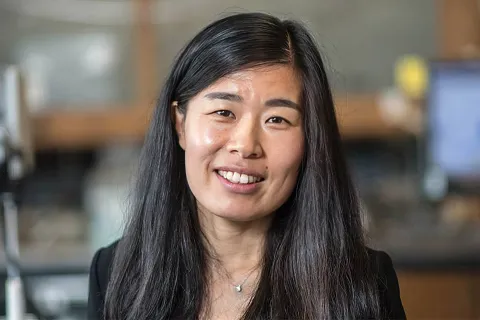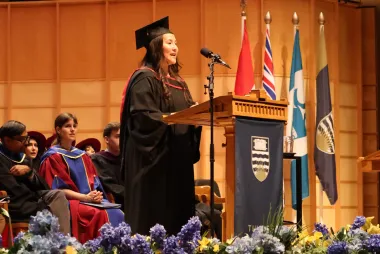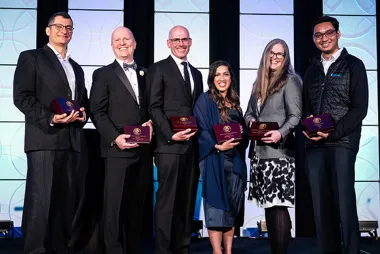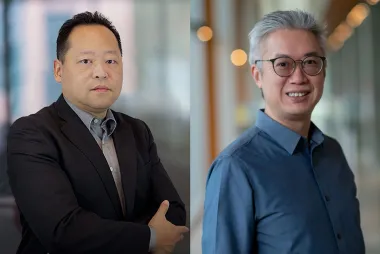UBC materials engineering professor awarded Canada Research Chair

Dr. Wenying Liu, Associate Professor in the Department of Materials Engineering at UBC’s Faculty of Applied Science, has been named a Tier 2 Canada Research Chair (CRC) in Battery Materials Extraction. She is one of nine UBC researchers to receive the honour, and is one of five who has received their first appointment.
The Canada Research Chairs Program stands at the centre of a national strategy to make Canada one of the world's top countries in research and development. It invests approximately $311 million per year to attract and retain a diverse cadre of world-class researchers, to reinforce academic research and training excellence in Canadian postsecondary institutions.
Tier 2 Chairs are tenable for five years and renewable once. They are for exceptional emerging researchers, acknowledged by their peers as having the potential to lead in their field. The institution each Tier 2 Chair is a part of receives $100,000 annually for five years, with an additional $20,000 annual research stipend for first-term Tier 2 Chairs such as Liu.
Liu’s research focuses on developing aqueous-based processes (hydrometallurgy) for critical metals extraction from low-grade ore and mine waste and minimizing environmental impacts of contaminant release from mine waste.
Liu was the 2021 recipient of the Brimacombe Award by the Metallurgy and Materials Society of the Canadian Institute of Mining, Metallurgy and Petroleum, which recognizes early-career members who have made noteworthy contributions in the field.
She speaks about her work and future research plans:
What problem are you looking to solve?
Metals, such as copper, nickel and rare earth elements, are key components in batteries and clean technologies essential to address the climate crisis. Canada is well positioned to be the world-leading producer of these critical metals and exporter of state-of-the-art metallurgical technologies.
To ensure safe and responsible supplies of these metals, their extraction must transition from processing high-grade ores using traditional energy-, water- and chemical-intensive methods, to treating low-grade ores and wastes with innovative methods that produce minimal environmental impact and low carbon footprint.
What does your current research look like?
My research focuses on developing sustainable aqueous technologies for extraction of metals critical to the global transition to a low-carbon economy.
Leveraging my expertise in hydrometallurgy and mine waste, my research aims to advance this transition at multiple steps of the raw materials processing life cycle, from ore size reduction, to metal extraction, to safe disposal of generated waste.
What are your future research plans?
My future research will focus on the use of innovative methods that combine recent advances in omics-based techniques and large dataset analytics and machine learning to develop microbial-based processes for extraction of critical metals and manage the environment impact of metal release from generated waste.



